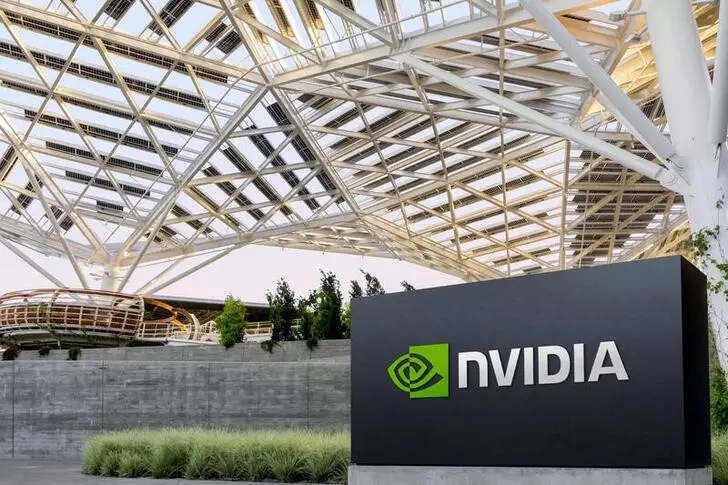On a consequential Monday, China initiated an investigation into Nvidia, the renowned American semiconductor giant, amidst ongoing tensions in U.S.-China trade relations. This inquiry is perceived as a tactical reprisal against stricter U.S. policies that have significantly limited the capabilities of Chinese firms in the semiconductor domain. While details about the alleged anti-monopoly violations remain sparse, the speculative nature of the investigation hints at deeper geopolitical implications, reflecting a brewing storm in the tech industry that could shape future international collaborations and competition.
The State Administration for Market Regulation (SAMR), the Chinese body overseeing market practices, announced the probe without providing concrete allegations against Nvidia. It mentioned concerns about Nvidia’s adherence to prior commitments made during its 2020 procurement of Israel-based Mellanox Technologies. The intricacies of these commitments were aimed at ensuring fair market practices, particularly in the rapidly evolving domain of artificial intelligence (AI) and gaming technology.
In response, Nvidia expressed its commitment to cooperating fully and emphasized its dedication to maintaining high standards in all its business dealings. The company’s optimism, however, belies the challenging landscape it faces, as questions loom over its dominance in the Chinese market—a considerable part of its global business strategy.
This investigation is the latest development in a prolonged trade war, characterized by a series of retaliatory measures by both nations. Earlier in the month, the U.S. rolled out its most stringent restrictions yet, affecting 140 companies, including pivotal players in the chip manufacturing industry. China responded with its own export restrictions on essential minerals like gallium and germanium, items critical to semiconductor production.
The cyclical nature of these sanctions reveals a strategic effort by both governments to establish technological supremacy while simultaneously undermining the other’s capabilities. Analysts suggest that Nvidia’s recent struggles in the Chinese market, where its share of revenue has dwindled from 26% to 17% in just two years, are emblematic of broader challenges stemming from these geopolitical tensions.
Despite the challenges posed by U.S. sanctions, Nvidia once held a commanding presence in China, cornering over 90% of the AI chip market prior to the introduction of stringent trade controls. However, as the competitive landscape evolves, domestic firms such as Huawei are increasingly emerging as formidable challengers. Nvidia’s decline in revenue share from China illustrates not only the impact of geopolitical strife but highlights the growing prowess of local technology companies that can navigate these turbulent waters more adeptly than their foreign counterparts.
Nvidia’s strategy to adapt has been twofold: first, by developing modified versions of its AI chips to cater to the Chinese market, and second, by launching additional adjustments in light of the latest U.S. restrictions. However, with each strategic pivot, the company’s market position in China seems increasingly precarious as the local industry ramps up its own technological capabilities.
Looking back, this is not the first time China has scrutinized foreign tech firms under anti-monopoly legislation. A historical precedent was set in 2013 when Qualcomm faced substantial fines related to monopolistic practices. The investigation led to a hefty $975 million penalty, at the time, the largest ever imposed by China. Such actions suggest a pattern wherein foreign technology firms are held accountable to local market practices, serving as both a warning and a tactical maneuver in larger political clashes.
While analysts like Bob O’Donnell contend that the current investigation may not substantially impact Nvidia’s operations in the short term—given that many of its advanced products are already restricted from the Chinese market—the ramifications for the company’s long-term strategy could be profound.
As the rivalry between the U.S. and China intensifies, companies like Nvidia find themselves at the crossroads of innovation and geopolitics. The investigation could serve as a cautionary tale for foreign technology firms navigating a convoluted regulatory framework in China while grappling with the implications of U.S. sanctions.
With both countries deeply entrenched in their respective positions, the potential for collaboration grows dimmer, forcing companies to reconsider their strategies and diversely engage in markets that remain largely influenced by political dynamics. As the situation unfolds, the tech world watches closely, aware that the implications extend far beyond Nvidia, impacting the entire semiconductor ecosystem and shaping international relations for years to come.


Leave a Reply